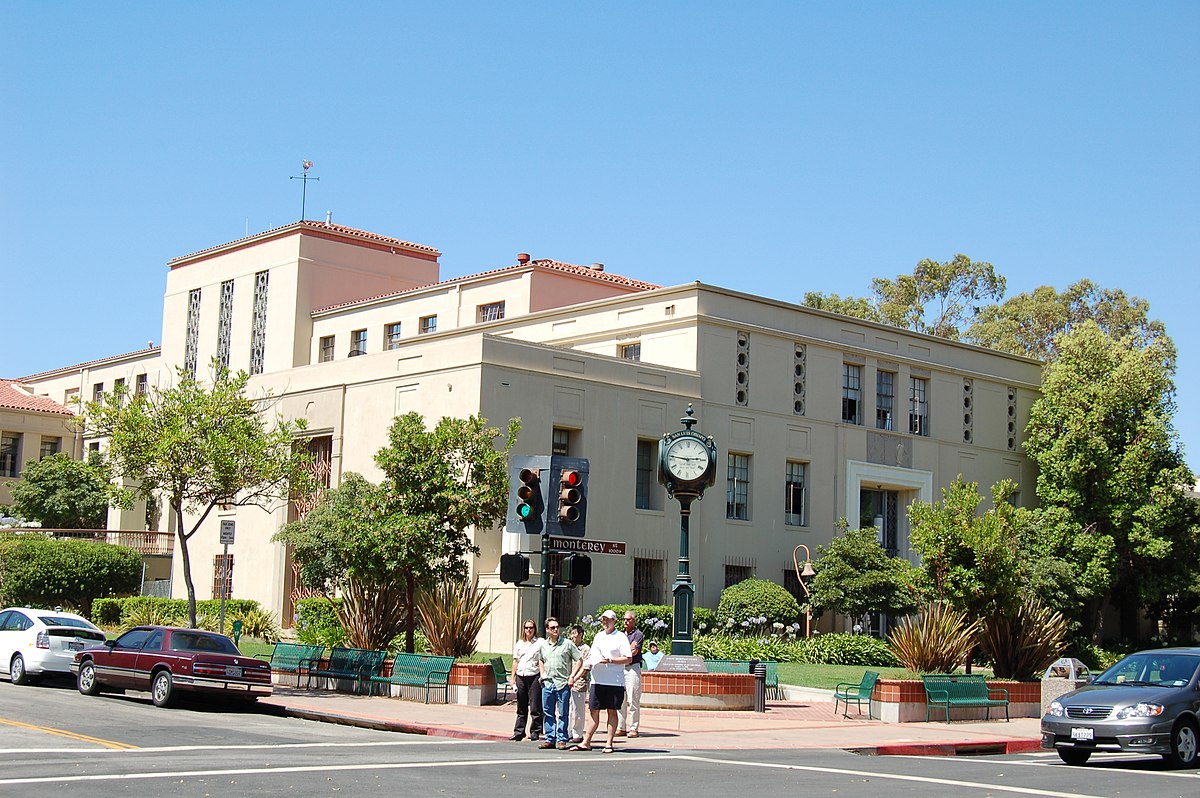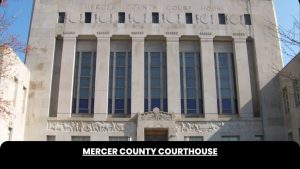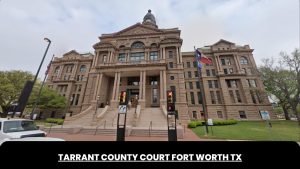San Luis Obispo County Superior Court – Civil & Family Law Branch
Time
Working Hours:
mon-fri
8:00 AM – 5:00 PM
Saturday: closed
Sunday: closed
Connect with a Attorney
Overview of San Luis Obispo County Superior Court – Civil & Family Law Branch
History and Background
The San Luis Obispo County Superior Court serves the central coast region of California, covering all legal matters in San Luis Obispo County. The court operates out of multiple locations, with the main courthouse located in the city of San Luis Obispo.
The San Luis Obispo County Superior Court has a long history dating back to the founding of San Luis Obispo County in 1850. It was one of the original county superior courts established by California’s first constitution when it became a state. Over the years, the court’s jurisdiction and operations have expanded to cover a wide range of civil, criminal, family, probate, and juvenile cases.
Jurisdiction and Location
The San Luis Obispo County Superior Court has countywide jurisdiction over all felony criminal cases, civil cases with claims over $25,000, family law petitions, probate matters, and juvenile cases. There are currently over 30 judges serving on the court.
The main courthouse is located in San Luis Obispo at 1050 Monterey Street. Additional courthouses and legal centers can be found in other cities including Paso Robles, Atascadero, and Grover Beach. The court utilizes these multiple locations to make its services more accessible to residents across San Luis Obispo County.
Departments and Services
The San Luis Obispo County Superior Court is organized into different departments and divisions that handle specific types of legal matters and proceedings. The two main departments relevant to civil and family law are:
Civil Division
The civil division oversees all non-criminal civil disputes, including:
- Contract disputes
- Personal injury and property damage lawsuits
- Medical malpractice cases
- Product liability claims
- Real estate and landlord-tenant cases
Civil cases may involve trials before a judge or jury to resolve factual and legal issues. The civil division manages all phases of these cases including filings, hearings, discovery, and trials.
Family Law Division
The family law division handles all matters related to family and domestic issues, such as:
- Divorce, annulment, legal separation
- Child custody and visitation
- Child support and spousal support
- Paternity establishment
- Domestic violence restraining orders
Family law cases involve sensitive disputes that require judges and staff trained in this specialty. The family law division provides services to help individuals represent themselves pro per if they cannot afford an attorney.
Self-Help Services
The court offers extensive self-help services to assist people without lawyers in navigating the legal system. Services include:
- Self-help website with forms and guides
- Workshops and legal clinics
- Personal assistance completing forms
- Referrals to legal aid and low-cost legal help
Using self-help can make the legal process more affordable for low and middle-income individuals.
Filing a Lawsuit
To initiate a civil lawsuit in San Luis Obispo Superior Court, plaintiffs must properly draft and file a complaint along with supporting forms. Key issues include:
Filing Fees
Filing fees vary based on the type and size of the claim. Current standard fees are:
- $435 for cases under $10,000
- $450 for cases between $10,000 to $25,000
- $450 plus additional fees over $25,000
Fees may be waived for very low-income plaintiffs.
E-Filing
Attorneys must electronically file (e-file) documents through the court’s online portal. Self-represented litigants can e-file or file in person at the clerk’s office. E-filing allows 24/7 access and is more efficient.
Going to Trial
If a civil case does not settle, it will proceed to a trial before either a jury or a judge.
Jury Trials
Parties in most civil disputes have a right to a jury trial. Jury trials take place before a judge who oversees the process and 6 or 12 citizens who serve as jurors. After hearing testimony and reviewing evidence, the jury deliberates and returns a verdict.
Bench Trials
In a bench trial, the judge acts as the sole decision maker after considering evidence and argument by the parties. There is no jury. Plaintiffs or defendants can request a bench trial instead of a jury trial in most civil cases.
Getting Legal Help
Navigating the civil and family court system can be complex, making legal representation advisable. Options include:
Finding an Attorney
Hiring a private civil litigation or family law attorney is recommended for people who can afford the fees. The San Luis Obispo County Bar Association’s lawyer referral service can help connect people with attorneys.
Legal Aid
For those who meet income qualifications, Central Coast Legal Services provides free legal assistance in civil and family law matters. They can help with issues like domestic violence, guardianships, housing, and consumer debt.
California Court Rules and Legal System
The California court system provides a complex and comprehensive structure for upholding the rule of law across the state. Like the court systems in other states, California has established trial and appellate courts that handle both criminal and civil matters. However, California’s enormous population of nearly 40 million residents necessitates an especially large and intricate judicial system. This article will provide an overview of the California state court structure, methods for accessing legal information, avenues for legal help, and options for resolving disputes through litigation or alternative means.
Overview of California Court System
California has over 2,000 judges presiding in over 600 superior and appellate courts across 58 counties. The Judicial Council of California oversees policy and administration for the state courts under the leadership of the Chief Justice of the California Supreme Court. The state courts include:
Superior Courts
The superior courts operate in each of California’s counties to handle trials, including:
Small Claims Courts
Small claims courts offer a simpler and more affordable option for resolving smaller disputes under $10,000. Plaintiffs can file claims without a lawyer.
Traffic Courts
Traffic courts review infractions and misdemeanor traffic violations. Defendants may request a hearing before a judge.
Superior courts also oversee felony criminal cases, civil lawsuits with claims over $25,000, family law matters like divorce and child support, probate of wills and estates, conservatorships, guardianships, and name changes.
Appellate Courts
The appeals courts review decisions from the superior courts for errors of fact or law. They include:
Court of Appeal
The California Courts of Appeal have over 100 justices in six appellate districts across the state. Most appeals come directly here from the superior courts.
California Supreme Court
The Supreme Court sits in San Francisco and has just 7 judges. It selectively reviews decisions from the appellate courts and directly takes appeals relating to certain issues like death penalty cases. Published Supreme Court decisions establish binding precedent for all lower state courts.
Accessing California Legal Information
To understand or exercise your legal rights in California, it helps to have access to relevant laws, court rules, and forms. Fortunately, the state provides extensive legal information through online resources and law libraries open to the public.
Online Resources
Convenient online sources for California legal information include:
California Courts Website
The California Courts website publishes state laws, court rules, and judicial forms for areas like small claims, traffic, family law, and more. It also shares general legal guidance for non-lawyers.
Nolo Legal Information Website
Nolo.com publishes practical legal guides, books, articles, and downloadable forms specific to California laws in areas like family, estate planning, employment, and landlord-tenant disputes.
Law Libraries
All California counties have a law library that collects legal materials. Options include:
County Law Libraries
Each county maintains a law library focused on local laws and practices. Most are open to public visitors.
Public Law Libraries
Major city and county public library systems like Los Angeles and San Francisco have dedicated legal collections open to all.
Using these resources, California residents can educate themselves on state laws impacting their lives and upcoming legal issues.
Getting Legal Help in California
While legal information provides a foundation, at some point you may need personalized legal advice or representation from a qualified attorney. There are a few ways to access affordable legal services in California.
Hiring a Lawyer
Private lawyers offer legal expertise for a fee, which can vary widely depending on factors like experience and location. Options for finding representation include:
Lawyer Referral Services
Local bar associations across California run referral programs that match clients with prescreened, qualified lawyers for a low consultation fee.
Limited Scope Representation
Also called “unbundled” legal services, lawyers can now provide a la carte assistance on aspects of your case like document review for a smaller total fee.
Legal Aid and Pro Bono Services
Free and reduced-cost legal aid is accessible for low-income Californians. These services often focus on housing, domestic violence, disability, and immigration issues. Providers include:
Legal Aid Organizations
Non-profit legal aid groups like Public Counsel in Los Angeles County and Bay Area Legal Aid serve disadvantaged local residents across California.
Law School Clinics
Universities like UCLA and Stanford operate legal clinics where students gain experience by assisting community clients pro bono under faculty supervision.
Resolving Legal Disputes
If you end up in a legal dispute or conflict in California, you essentially have two options: litigation or alternative dispute resolution. Each has pros and cons to weigh.
Litigation
Formal litigation through the court system includes:
Small Claims Court
Small claims courts offer a simple, inexpensive way to resolve minor disputes without lawyers. However, you must still build your case and collect any judgment.
Superior Court
For larger civil claims and serious criminal matters, superior courts impose formal rules of evidence and procedure. The process is complex without an attorney.
Alternative Dispute Resolution
Methods like mediation and arbitration aim to reach resolution more quickly and cooperatively through:
Mediation
A neutral mediator facilitates negotiations between parties and proposes potential settlements. Agreements reached are voluntary and enforceable.
Arbitration
During private arbitration, an arbitrator reviews arguments and evidence then issues a decision. Arbitration rulings can be legally binding.
Additional Resources
For more information on California courts and law, consult:
- California Courts Self-Help Center
- LawHelpCA.org – Legal aid referrals
- California Bar Association – Attorney search
This overview covers key aspects of researching, understanding, and navigating the laws and courts in the state of California. By utilizing the resources and services discussed, Californians can actively participate in the legal system that governs their rights and responsibilities. With proper access to legal information and assistance, we can all achieve greater justice.
Free and Low-Cost Legal Services in California
Navigating the legal system can be complex and expensive without proper guidance and representation. Fortunately, California offers various options for accessing free and affordable legal services for those unable to hire a private attorney. These resources help ensure people at all income levels can exercise their rights and have their day in court.
This section will outline the main providers of free and low-cost legal aid in California. It will cover legal aid societies, law school clinics, limited scope representation, government legal services, and non-profit centers. Understanding these options is the first step toward getting the legal assistance you need.
Legal Aid Societies
Non-profit legal aid organizations provide free civil legal services to qualifying low-income residents across California. They help with issues like housing, domestic violence, disability access, healthcare, education, and immigration. Some of the main statewide legal aid providers include:
- Legal Aid Foundation of Los Angeles – L.A. County services
- Legal Aid Society of San Diego – San Diego County services
- Bay Area Legal Aid – Seven Bay Area counties
- Central California Legal Services – Six Central Valley counties
- Greater Bakersfield Legal Assistance – Kern County services
Eligibility is based on income, with most setsving households at or below 200% of federal poverty guidelines. Services include legal advice, representation in court, filing documents, and referrals to pro bono lawyers. Applicants can call or apply online.
Law School Clinics
Several law schools in California operate legal clinics where students gain hands-on experience handling real cases under faculty supervision. Common clinics assist with immigration issues, workers rights, housing law, domestic violence, criminal record expungement, and environmental policy. These services are generally provided for free if the client qualifies financially. Clinics are located at schools like:
- Stanford Law School
- UC Berkeley School of Law
- UCLA School of Law
- Pepperdine University School of Law
- University of Southern California Gould School of Law
Contact the individual law school to find current clinic offerings and eligibility guidelines. Appointments may be required.
Limited Scope Representation
Also called “unbundled legal services,” this model allows lawyers to provide tailored representation or assistance on specific aspects of a case without taking over the entire case. These limited services can be more affordable than full representation. Lawyers may help with legal advice, document review, research, drafting letters or pleadings, discovery, court appearances, and trial preparation. Discuss your needs and budget to customize services.
Government Legal Services
Certain California government agencies provide legal aid related to their specific mission and services, such as:
- California Department of Child Support Services – Help establishing and enforcing child support orders
- California Department of Social Services – Appeals of public assistance denials or terminations
- California Department of Veterans Affairs – Assists veterans and their dependents with benefits
Contact each agency directly to learn about their legal aid programs and eligibility rules. Services are usually focused on the agency’s particular area of administration.
Non-Profit Legal Centers
Some California non-profits and community centers offer legal help tailored to particular groups or issues, often at low-cost. For example:
- AIDS Legal Referral Panel – Legal services related to HIV/AIDS
- Cancer Legal Resource Center – Lawyers assisting cancer patients
- National Lawyers Guild – Various civil rights and social justice issues
Research non-profit legal centers focused on your specific legal situation or identity. These groups help ensure underserved populations gain access to affordable legal advocacy and justice.
With California’s wide range of free and low-cost legal services, those in need can find knowledgeable legal support even with limited financial resources. These programs help level the playing field so all Californians can exercise their rights.
Key Takeaways
- The San Luis Obispo County Superior Court oversees the county’s civil, criminal, family, probate, and juvenile case proceedings.
- The court’s civil division handles all non-criminal disputes including contract, personal injury, malpractice, and real estate cases.
- Family law matters such as divorce, child custody, and domestic violence are addressed in the family law division.
- Extensive self-help services assist people without attorneys navigate the legal system.
- Plaintiffs must properly file a complaint and pay fees to initiate a civil lawsuit. Trials take place before a judge or jury.
- Hiring an attorney or utilizing legal aid services can provide important guidance on civil and family law matters.
- California maintains independent superior trial courts in each county and statewide appellate courts.
- Legal guidance for Californians is accessible through online resources like the California Courts website and physical law libraries in every county.
- Low-cost legal services are available from legal aid organizations, law school clinics, and lawyers providing limited scope representation.
- Small claims courts offer a simple litigation option for minor disputes, while mediation and arbitration serve as alternatives to traditional litigation.






